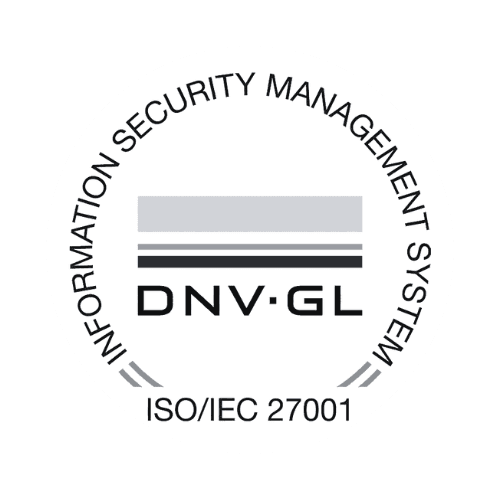Sé el primero en saberlo
Written by AI
Empowerment in the workplace: How companies can empower their employees
In an increasingly complex and demanding business world, motivated and engaged employees play a crucial role in the success of companies. Companies are faced with the challenge of empowering their employees and providing them with a sense of belonging and autonomy. An effective concept that enables this is empowerment in the workplace. In this article, we will take a closer look at what empowerment means, how it can support companies in empowering their employees, and the strategies and challenges associated with the implementation of empowerment.
What is Empowerment in the Workplace?
Empowerment refers to the process in which companies empower and enable their employees to take responsibility, make decisions, and proactively contribute to problem-solving. It's about conveying to employees that they have an impact on their work and that their opinions and ideas are valued.
The Importance of Empowerment
Empowerment is an important cornerstone of a healthy corporate culture. It helps to strengthen employees' self-confidence, promote engagement, and increase willingness to innovate and collaborate. Through empowerment, employees feel valued and motivated to do their best.
The Role of Empowerment in Corporate Culture
Empowerment plays a crucial role in shaping a positive and supportive corporate culture. By encouraging employees to take responsibility and leverage their skills and talents, empowerment fosters a culture of trust, openness, and shared responsibility.
Empowerment can also help strengthen employee retention. When employees feel that their work has a purpose and that they make a real contribution to the company's success, they are more likely to stay with the company long-term. This leads to higher employee satisfaction and a more stable workforce.
Another important aspect of empowerment is promoting diversity and inclusion in the workplace. By encouraging employees to contribute their opinions and perspectives, empowerment creates an environment where diversity is valued and promoted. This not only contributes to a positive corporate culture but can also enhance the company's ability to innovate, as different perspectives can lead to creative solutions.
The Benefits of Empowerment for Companies
Empowerment offers numerous benefits for companies that can directly impact their success and long-term development. Here are some of the most important advantages:
Increased Employee Satisfaction
Empowerment allows employees to have more control over their work situation and make decisions that affect their well-being, leading to higher employee satisfaction and lower turnover.
Improvement in Productivity and Efficiency
By empowering employees to make independent decisions and take responsibility, motivation and engagement increase. This leads to improved productivity and efficiency, as employees proactively seek solutions and do their best to achieve the set goals.
Empowerment can also strengthen a company's innovation potential. When employees have the confidence and authority to bring forth and implement new ideas, they can become more creative and innovative. This can lead the company to adapt to changes more quickly and seize new opportunities in the market.
Furthermore, empowerment can have a positive influence on corporate culture. By promoting autonomy and independence, empowerment creates an atmosphere of trust and openness. Employees feel valued and taken seriously, leading to a more harmonious work environment and better collaboration.
Strategies for Promoting Empowerment
Empowerment is not a one-time process but requires continuous efforts and support from management. Here are some strategies companies can use to promote empowerment:
Creating a Supportive Work Environment
It is important to create a work environment where employees feel safe to express their opinions and bring forth new ideas. Open communication, a respectful tone, and the promotion of feedback are crucial to empowering employees and making them feel that their contributions are valued.
Promoting Employee Development and Education
Companies should provide employees with the opportunity to continuously develop and enhance their skills. Training, educational programs, and support for individual career planning are important tools to empower employees and make them feel that they can advance professionally.
Empowerment in companies can also be strengthened through the introduction of participative decision-making processes. By involving employees in decision-making and allowing them to take responsibility, their engagement and motivation increase. This leads to a stronger identification with the company and a greater commitment to shared goals.
Establishing a Feedback Culture
Another important aspect of promoting empowerment is establishing a culture of feedback. Regular feedback, both from leaders and among employees, allows for the recognition of strengths, the improvement of weaknesses, and collective work on development. An open and constructive feedback culture builds trust and promotes the personal development of each individual in the company.
Challenges in Implementing Empowerment
Implementing empowerment can also face some challenges. Here are two of the most common challenges and how they can be overcome:
Resistance to Change
Some employees may be skeptical of change and feel insecure about taking on more responsibility. Open communication, involving employees in the decision-making process, and demonstrating the benefits of empowerment can help reduce resistance to change.
Need for Continuous Evaluation and Adaptation
Empowerment is a dynamic process that requires continuous evaluation and adaptation. Companies should regularly evaluate the progress and impact of empowerment on employees and the company, and make adjustments as necessary.
When implementing empowerment in organizations, it is important to consider the cultural differences and individual needs of employees. Not all employees react the same way to changes and the delegation of responsibility. A tailored approach that takes into account the specific corporate culture and individual personalities can help overcome resistance and ensure successful integration of empowerment.
Integration into Existing Structures and Processes
Another important aspect of implementing empowerment is integrating it into existing structures and processes. It is crucial that empowerment is not viewed in isolation but seamlessly integrated into existing workflows and hierarchies. This may require a redesign of processes and clear communication about the changes to ensure that empowerment can be effectively implemented.
Conclusion: Empowerment as a Key to Company Success
Empowerment plays a crucial role in empowering employees and promoting their engagement and performance. Companies that successfully integrate empowerment into their corporate culture benefit from higher employee satisfaction, improved productivity, and strengthened competitiveness. It is important for companies to recognize the importance of empowerment and take appropriate measures to convey a sense of autonomy and belonging to their employees.
Empowerment can be implemented in various ways, such as delegating responsibility, providing decision-making freedom, and promoting initiative. Employees who feel empowered are more motivated, creative, and committed to their work. This leads to a positive work atmosphere and better working environment, which in turn affects company success.
Another important aspect of empowerment is continuous communication between leaders and employees. Through open discussions, regular feedback, and transparent decision-making processes, misunderstandings can be avoided and trust can be strengthened. This creates a basis for successful collaboration and promotes the growth and development of both individuals and the company as a whole.








